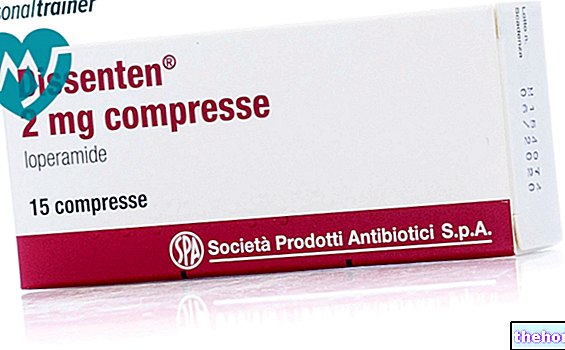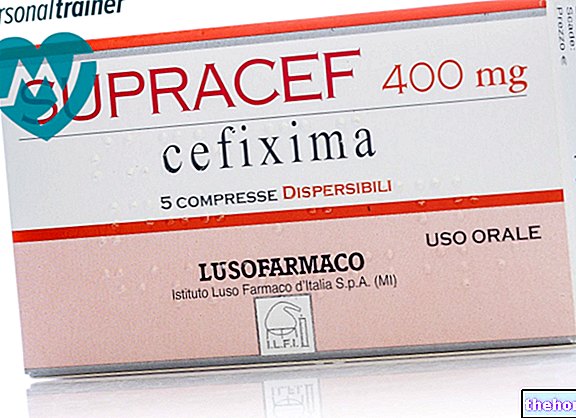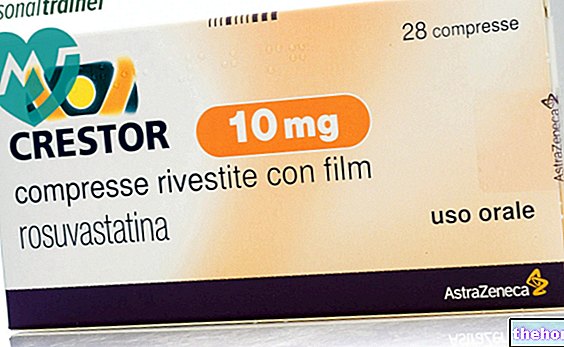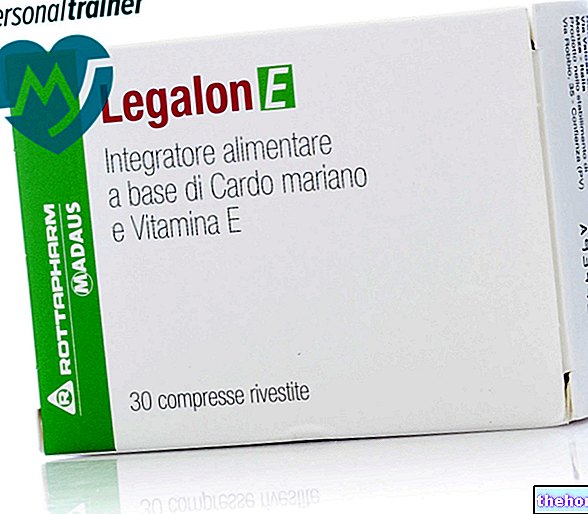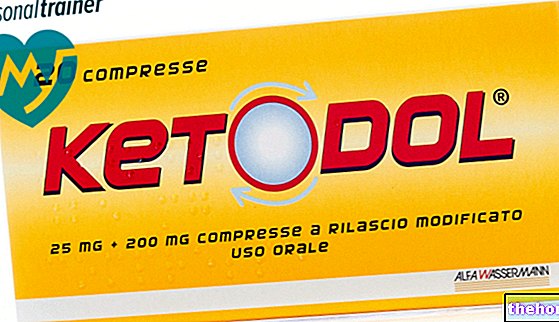Active ingredients: Mometasone (Mometasone furoate)
RINELON 50 micrograms / actuation, nasal spray, suspension
Indications Why is Rinelon used? What is it for?
What is RINELON?
RINELON Nasal Spray contains mometasone furoate which belongs to a group of medicines called corticosteroids. When mometasone furoate is sprayed into the nose, it can help reduce inflammation (swelling and irritation of the nose), sneezing, itching, and conditions of a stuffy or runny nose.
What is RINELON used for?
Hay fever and perennial rhinitis
RINELON is used to treat the symptoms of hay fever (also called seasonal allergic rhinitis) and perennial rhinitis in adults and children from 3 years of age.
Hay fever, which appears at certain times of the year, is an allergic reaction caused by the inhalation of pollen from trees, grass, weeds and even molds and fungal spores. Perennial rhinitis is present all year round and Symptoms can be caused by sensitivity to a variety of elements, including house dust mite, animal hair (or dandruff), feathers and certain foods. RINELON reduces swelling and nasal irritation and thus sneezing, itching and stuffy or runny nose conditions caused by hay fever or perennial rhinitis.
Nasal polyps
RINELON is used for the treatment of nasal polyps in adults from 18 years of age.
Nasal polyps are small growths on the nasal mucosa and usually affect both nostrils. RINELON reduces the inflammation of the nose by causing a gradual narrowing of the polyps, thus relieving the sensation of nasal obstruction and improving breathing through the nose.
Contraindications When Rinelon should not be used
Do not use RINELON
- if you are allergic (hypersensitive) to mometasone furoate or any of the other ingredients of this medicine
- if you have an "untreated nasal infection. Using RINELON during an untreated" nasal infection, such as herpes, can make the infection worse. You must wait for the infection to clear before you start using the spray nasal.
- if you have recently had a nose operation or suffered a nose injury. You should not use the nasal spray until the nose problem is resolved.
Precautions for use What you need to know before you take Rinelon
Talk to your doctor or pharmacist before using RINELON
- if you have or have suffered from tuberculosis
- if you have any other infections
- if you are taking other corticosteroids, either by mouth or by injection
- if you have cystic fibrosis
While using RINELON, talk to your doctor
- if your immune system is not working properly (struggling to fight infections) and if you come into contact with a person with measles or chickenpox. Avoid coming into contact with people who have these infections.
- if you have a nose or throat infection.
- if you have been using this medicine for several months or longer.
- if you have persistent "irritation of the nose or throat.
When corticosteroid nasal sprays are used in high doses for long periods of time, side effects may arise due to the medicine being absorbed into the body.
If your eyes are itchy or irritated, your doctor may prescribe other treatments to be used together with RINELON.
Children
When used in high doses and for long periods of time, corticosteroid nasal sprays can cause some side effects, such as stunted growth in children.
It is recommended that the height of children on prolonged treatment with nasal corticosteroids be checked regularly and that the doctor is informed if any changes are noted.
Interactions Which drugs or foods can modify the effect of Rinelon
Tell your doctor or pharmacist if you are taking, have recently taken or might take any other medicines.
If you are taking other corticosteroid medicines for allergy treatment, either by mouth or by injection, your doctor may advise you to stop these when you start using RINELON. When you stop taking oral or injectable corticosteroids, some people may having side effects, such as joint or muscle pain, weakness and depression. You may also seem to develop other allergies, such as itchy, watery eyes or red, itchy patches on your skin. Consult your doctor if you notice any of these effects.
Warnings It is important to know that:
Pregnancy and breastfeeding
There is little or no information on the use of RINELON in pregnant women. It is not known whether mometasone furoate passes into breast milk.
If you are pregnant or breast-feeding, think you may be pregnant or are planning to have a baby, ask your doctor or pharmacist for advice before using this medicine.
Driving and using machines
No information is available on the effects of RINELON on the ability to drive or use machines.
RINELON contains benzalkonium chloride
RINELON contains benzalkonium chloride which may cause nasal irritation.
Dose, Method and Time of Administration How to use Rinelon: Posology
Always use RINELON exactly as your doctor has advised you. If in doubt, consult your doctor or pharmacist. Do not use higher or more frequent doses or for longer than prescribed by your doctor.
Treatment of hay fever and perennial rhinitis
Use in adults and children over 12 years of age
The usual dose is two sprays into each nostril once a day.
- Once your symptoms are under control, your doctor may advise you to reduce your dose.
- If you do not feel any improvement, consult your doctor, who may tell you to increase the dose; the maximum daily dose is four sprays into each nostril once a day.
Use in children from 3 to 11 years of age
The usual dose is one spray into each nostril once a day. In some patients, RINELON begins to relieve symptoms within 12 hours following the administration of the first dose; however, the full benefit of treatment may not be seen in the first two days. Therefore, regular use must continue to get the full benefit of the treatment.
If you or your child have severe hay fever your doctor may advise you to start using RINELON a few days before the expected start of the pollen season: this will help prevent hay fever symptoms from appearing.
Nasal polyps
Use in adults over 18 years of age
The usual starting dose is two sprays into each nostril once a day.
- If symptoms are not controlled after 5 or 6 weeks, the dose can be increased to two sprays in each nostril twice a day. When your symptoms are under control, your doctor may advise you to reduce the dose.
- If your symptoms do not improve after 5 or 6 weeks of starting the daily double dose, please contact your doctor.
How to prepare the nasal spray for use
RINELON Nasal Spray is equipped with a dust cap, which protects the vaporizer and keeps it clean. Remember to remove it before using the spray and to reposition it after use.
If you are using the spray for the first time, you will need to prime the pump 10 times until you see an even jet:
- Gently shake the bottle
- Place your index and middle fingers on either side of the vaporizer, your thumb under the base of the bottle. Do not pierce the nasal applicator.
- To charge the spray, point the vaporizer away from you and press 10 times with your fingers until you get an even jet.
If you have not used the spray for 14 days or more, you will have to "refill" the pump 2 times until you see a uniform jet.
How to use the nasal spray
- Gently shake the bottle and remove the dust cap.
- Gently blow your nose.
- Close one nostril and insert the vaporizer into the other as indicated. Tilt your head slightly forward, keeping the bottle upright.
- Begin to breathe in gently or slowly through the nose, administer a squirt of the spray into the nose by pressing ONCE with your fingers.
- Breathe out through your mouth. Repeat step 4 to inhale a second spray into the same nostril, if applicable.
- Remove the vaporizer from this nostril and exhale through your mouth.
- Repeat steps 3 to 6 for the other nostril.
After using the product, carefully clean the vaporizer with a clean tissue or cloth and replace the dust cap.
How to clean the nasal spray
- It is important to clean the nasal spray regularly otherwise it may not work properly.
- Remove the dust cap and gently remove the vaporizer.
- Wash the vaporizer and dust cap with lukewarm water, then rinse under running water.
- Do not try to unblock the nasal applicator by inserting a pin or other pointed object as this will damage the nasal applicator and will not allow you to get the right dose of the medicine.
- Leave the dust cap and vaporizer to dry in a warm place.
- Place the vaporizer back on the bottle and replace the dust cap.
- The spray needs to be refilled with at least 2 sprays at the first use after cleaning.
Overdose What to do if you have taken too much Rinelon
If you use more RINELON than you should
Tell your doctor if you have accidentally used more than you should. In rare cases, prolonged or high-dose use of steroids can affect the levels of some hormones. In children, this effect can affect growth and development.
If you forget to use RINELON
If you forget to use the nasal spray at the right time, use it as soon as you remember, then continue as usual. Do not use a double dose to make up for the forgotten one.
If you stop taking RINELON
In some patients, symptoms will begin to be relieved 12 hours after the first dose of RINELON is given; however, full therapeutic benefit will not be seen for two days. It is very important that you use the nasal spray regularly. Do not stop treatment, even if you feel better, until your doctor tells you to.
If you have any further questions regarding the use of this medicine, ask your doctor or pharmacist
Side Effects What are the side effects of Rinelon
Like all medicines, this medicine can cause side effects, although not everybody gets them.
Immediate hypersensitivity (allergic) reactions may occur with the use of this medicine. These reactions can be serious. You should stop using RINELON and seek immediate medical attention if any of the following symptoms occur:
- swelling of the face, tongue or pharynx
- difficulty swallowing
- urticaria
- wheezing or difficulty breathing
When corticosteroid nasal sprays are used in high doses for long periods of time, side effects may occur due to the medicine being absorbed into the body.
Other side effects
Most people have no problems using the nasal spray. Some people, however, after using RINELON or other corticosteroid nasal sprays may experience:
Common side effects (may affect up to 1 in 10 people):
- headache
- sneezing
- nose bleeding [very commonly occurring (may affect more than 1 in 10 people) in people with nasal polyps treated with two sprays of RINELON in each nostril twice a day]
- pain in the nose or throat
- ulcers in the nose
- respiratory tract infections
Not known (frequency cannot be estimated from the available data):
- increased pressure inside the eye (glaucoma) and / or cataracts causing visual disturbances
- damage in the septum of the nose that separates the nostrils
- alterations in taste and smell
- difficulty in breathing and / or wheezing
Reporting of side effects
If you get any side effects, talk to your doctor or pharmacist. This includes any possible side effects not listed in this leaflet. You can also report side effects directly via the national reporting system at: https: //www.aifa.gov.it/content/segnalazioni-reazioni-avverse. By reporting side effects you can help provide more information about the safety of this medicine.
Expiry and Retention
- Keep this medicine out of the sight and reach of children.
- Do not store the nasal spray above 25 ° C. Do not freeze.
- Do not use this medicine after the expiry date which is stated on the bottle and carton after "EXP". The expiry date refers to the last day of that month.
Do not throw any medicines via wastewater or household waste. Ask your pharmacist how to throw away medicines you no longer use. This will help protect the environment.
What RINELON contains
- The active ingredient is mometasone furoate. Each spray contains 50 micrograms of mometasone furoate as monohydrate.
- The other ingredients are dispersible cellulose, glycerol, sodium citrate, citric acid monohydrate, polysorbate 80, benzalkonium chloride, purified water.
What RINELON looks like and contents of the pack
RINELON is a nasal spray, suspension.
Each bottle can hold 60 or 140 sprays.
Bottles containing 60 sprays are supplied in individual packs.
Bottles containing 140 sprays are supplied in packs of 1, 2 or 3 nasal sprays.
Not all pack sizes may be marketed.
Source Package Leaflet: AIFA (Italian Medicines Agency). Content published in January 2016. The information present may not be up-to-date.
To have access to the most up-to-date version, it is advisable to access the AIFA (Italian Medicines Agency) website. Disclaimer and useful information.
01.0 NAME OF THE MEDICINAL PRODUCT
RINELON 50 MCG / NASAL SPRAY DISPENSING, SUSPENSION
02.0 QUALITATIVE AND QUANTITATIVE COMPOSITION
Mometasone furoate (as monohydrate) 50 mcg / actuation.
Excipient with known effect:
this medicine contains 0.02 mg of benzalkonium chloride per actuation.
For the full list of excipients, see section 6.1.
03.0 PHARMACEUTICAL FORM
Nasal spray, suspension.
White to off-white opaque suspension.
04.0 CLINICAL INFORMATION
04.1 Therapeutic indications
RINELON nasal spray is indicated for the treatment of symptoms of seasonal or perennial allergic rhinitis in adults and children from 3 years of age.
RINELON Nasal Spray is indicated for the treatment of nasal polyps in adult patients aged 18 years and above.
04.2 Posology and method of administration
After an initial pump charge of RINELON Nasal Spray, each release releases approximately 100 mg of mometasone furoate in suspension, containing mometasone furoate monohydrate equivalent to 50 mcg of mometasone furoate.
Dosage
Seasonal or perennial allergic rhinitis
Adults (including elderly patients) and children from 12 years of age: the usually recommended dose is two puffs (50 mcg / puff) into each nostril once a day (total dose 200 mcg). Once symptoms are controlled, dose reduction to one puff in each nostril (total dose 100 mcg) may be effective for maintenance. If symptoms are not adequately controlled, the dose can be increased to a maximum daily dose of four puffs in each nostril once daily (total dose 400 mcg). Dose reduction is recommended once symptom control is achieved.
Children between 3 and 11 years of age: the usually recommended dose is one puff (50 mcg / puff) into each nostril once a day (total dose 100 mcg).
RINELON Nasal Spray has demonstrated the onset of clinically significant activity in some patients with seasonal allergic rhinitis within 12 hours of the first dose; however, a full treatment-related benefit may not be achieved within the first 48 hours. Therefore the patient should continue the treatment. regular use to obtain full therapeutic benefit.
In patients with a history of moderate to severe symptoms of seasonal allergic rhinitis, treatment with RINELON nasal spray may need to be started a few days before the expected start of the pollen season.
Nasal polyposis
The commonly recommended starting dose for polyposis is two puffs (50 mcg / puff) into each nostril once a day (for a total daily dose of 200 mcg). If symptoms are not adequately controlled after 5 or 6 weeks, the dose can be increased to a daily dose of two puffs into each nostril twice daily (for a total daily dose of 400 mcg). The dose should be reduced to the lowest dose at which effective symptom control is maintained. If symptom improvement does not occur after 5 or 6 weeks of twice daily treatment, the patient should be re-evaluated and the therapeutic strategy reconsidered.
The duration of the efficacy and safety studies of RINELON Nasal Spray in the treatment of nasal polyposis was four months.
Pediatric population
Seasonal allergic rhinitis and perennial rhinitis
The safety and efficacy of RINELON nasal spray in children less than 3 years of age have not been established.
Nasal polyposis
The safety and efficacy of RINELON nasal spray in children and adolescents below 18 years of age have not been established.
Method of administration
Before administering the first dose, shake the container well and operate the pump 10 times (until a uniform spray is obtained). If the vaporizer is not used for 14 days or more, before using it again, prime the pump with 2 puffs until an even jet is observed.
Shake the container well before each use. The bottle must be thrown away after making the number of deliveries indicated on the label or within 2 months after the first use.
04.3 Contraindications
Hypersensitivity to the active substance, mometasone furoate, or to any of the excipients listed in section 6.1.
RINELON Nasal Spray should not be used in the presence of untreated localized infections involving the nasal mucosa, for example herpes simplex.
Because of the inhibitory effect of corticosteroids on wound healing, patients who have recently undergone nasal surgery or who have undergone trauma should not use a nasal corticosteroid until healing has occurred.
04.4 Special warnings and appropriate precautions for use
Immunosuppression
RINELON Nasal Spray should be used with caution, or even not used, in patients with active or quiescent tuberculous infections of the respiratory tract or in the case of untreated fungal, bacterial or systemic viral infections.
Patients treated with corticosteroids who are potentially immunosuppressed should be advised of the risk of exposure to certain infections (eg chicken pox, measles) and of the importance of seeking medical attention if such exposure occurs.
Local nasal effects
After 12 months of treatment with RINELON nasal spray in a study conducted in patients with perennial rhinitis, no evidence of atrophy of the nasal mucosa was documented; moreover, mometasone furoate tends to restore the normal histological phenotype of the nasal mucosa. However, patients using RINELON Nasal Spray for several months or longer should be examined periodically for possible changes in the nasal mucosa. If you develop a "localized fungal infection in the nose or pharynx, your doctor may prescribe discontinuation of RINELON nasal spray therapy or appropriate treatment. Persistent" nasopharyngeal irritation may be a "indication for discontinuation of RINELON nasal spray.
Rinelon nasal spray is not recommended in case of nasal septal perforation (see section 4.8).
In clinical studies, epistaxis phenomena were found at a "higher incidence than placebo." Epistaxis was generally self-limiting and mild in severity (see section 4.8).
RINELON Nasal Spray contains benzalkonium chloride which may cause nasal irritation.
Systemic effects of corticosteroids
Systemic effects may occur with inhaled corticosteroids, particularly when prescribed in high doses for prolonged periods. These effects are much less likely to occur than with oral corticosteroid treatment and may vary in individual patients and between different corticosteroid preparations. Potential systemic effects may include Cushing's syndrome, Cushingoid appearance, adrenal suppression, growth retardation in children and adolescents, cataracts, glaucoma and, more rarely, a range of psychological or behavioral effects including psychomotor hyperactivity, sleep disturbances, anxiety, depression or aggression (particularly in children).
After the use of intranasal corticosteroids, cases of increased intraocular pressure have been reported (see section 4.8).
Particular care is required in the case of patients switching from long-term administration of systemically active corticosteroids to RINELON nasal spray. Discontinuation of systemic corticosteroid therapy in these patients may result in adrenal gland failure for a few months, until HPA axis function is restored. If these patients show signs and symptoms of adrenal insufficiency or withdrawal symptoms (eg . with initial signs of joint and / or muscle pain, asthenia and depression) despite improvement in nasal symptoms, administration of systemic corticosteroids should be resumed and other appropriate therapies and measures instituted. This step may also reveal any pre-existing allergic conditions, such as conjunctivitis or allergic eczema, previously suppressed by systemic corticosteroid therapy.
Treatment with higher than recommended doses may result in clinically significant suppression of the adrenal gland. If there is evidence that higher than recommended doses should be used, additional coverage with systemic corticosteroids during times of stress or elective surgery should be considered.
Nasal polyps
The safety and efficacy of RINELON Nasal Spray have not been studied in the treatment of unilateral polyps, polyps associated with cystic fibrosis or polyps that completely obstruct the nasal passages.
Unilateral polyps that appear unusual or irregular, especially if ulcerative or bleeding, need to be further evaluated.
Effects on growth in the pediatric population
It is recommended that the height of children on prolonged treatment with nasal corticosteroids is regularly monitored. If growth is slowed, therapy should be revised in order to reduce, if possible, the dose of the nasal corticosteroid to the lowest dose that allows effective control of the nasal corticosteroids. symptoms It is also advisable to advise the patient to consult a pediatrician.
Non-nasal symptoms
Although RINELON Nasal Spray will control nasal symptoms in most patients, the concomitant use of appropriate supplemental therapy may also relieve other symptoms, particularly ocular symptoms.
04.5 Interactions with other medicinal products and other forms of interaction
(For use with systemic corticosteroids, see section 4.4. Special warnings and precautions for use).
A clinical interaction study was conducted with loratadine. No interactions were observed.
04.6 Pregnancy and lactation
Pregnancy
There are limited or no data on the use of mometasone furoate in pregnant women. Studies in animals have shown reproductive toxicity (see section 5.3). As with other nasal preparations containing corticosteroids, RINELON Nasal Spray should not be used during pregnancy , unless the potential benefit to the mother justifies any potential risk to the mother, fetus or infant Children born to mothers treated with corticosteroids during pregnancy should be carefully observed for possible hypoadrenalism.
Feeding time
It is not known whether mometasone furoate is excreted in human milk. As with other nasal preparations containing corticosteroids, it will be considered whether to discontinue breast-feeding or to discontinue / avoid treatment with RINELON nasal spray taking into account the benefits of breast-feeding for the child and the benefits of therapy for the woman. .
Fertility
No clinical data on the effects of mometasone furoate on fertility are available. Animal studies have shown reproductive toxicity but have shown no effects on fertility (see section 5.3).
04.7 Effects on ability to drive and use machines
You don't notice.
04.8 Undesirable effects
Summary of the safety profile
Epistaxis was generally self-limiting and mild in severity and occurred at a higher incidence than placebo (5%), but with a comparable or lower incidence than the active control nasal corticosteroids studied (up to 15%) as reported. in clinical trials for allergic rhinitis. The incidence of all other adverse events was comparable to that of placebo. In patients treated for nasal polyposis, the overall incidence of adverse events was similar to that observed in patients with allergic rhinitis.
Systemic effects of nasal corticosteroids may occur, particularly when prescribed in high doses for prolonged periods.
Table of adverse reactions
Treatment-related adverse reactions (≥ 1%) reported in clinical trials in patients with allergic rhinitis or nasal polyposis and in post-marketing regardless of indication are shown in Table 1. Adverse reactions are listed by primary classification by MedDRA System Organ Classes. Within each system organ class, adverse reactions are categorized by frequency. Frequencies were defined as follows: very common (≥1 / 10); common (≥1 / 100,
* adverse reaction reported at twice daily dosing for nasal polyposis
† Adverse reaction reported uncommonly for twice daily dosing for nasal polyposis
Pediatric population
In the pediatric population, the incidence of adverse events reported in clinical trials, such as epistaxis (6%), headache (3%), nasal irritation (2%) and sneezing (2%), was comparable to that obtained with placebo.
Reporting of suspected adverse reactions
Reporting of suspected adverse reactions occurring after authorization of the medicinal product is important as it allows continuous monitoring of the benefit / risk balance of the medicinal product. Healthcare professionals are asked to report any suspected adverse reactions via the national reporting system. "address: www.agenziafarmaco.gov.it/it/responsabili.
04.9 Overdose
Symptoms
Inhalation or oral administration of excessive doses of corticosteroids can lead to suppression of HPA axis function.
Management
Since the systemic bioavailability of RINELON nasal spray is
05.0 PHARMACOLOGICAL PROPERTIES
05.1 Pharmacodynamic properties
Pharmacotherapeutic group: decongestants and other nasal preparations for topical use - corticosteroids.
ATC code: R01AD09.
Mechanism of action
Mometasone furoate is a topical glucocorticoid with local anti-inflammatory properties at doses that are not systemically active.
It is likely that the mechanism of the anti-allergic and anti-inflammatory effects of mometasone furoate is mostly related to its ability to inhibit the release of the mediators of allergic reactions. Mometasone furoate significantly inhibits the release of leukotrienes from the leukocytes of allergic patients. In cell cultures, mometasone furoate has shown high potency in inhibiting the synthesis and release of IL-1, IL-5, IL-6 and TNFα; it is also a potent inhibitor of leukotriene production. It is also an extremely potent inhibitor. Th2-mediated production of cytokines, IL-4 and IL-5, by CD4 + T cells.
Pharmacodynamic effects
In studies using the nasal antigen exposure technique, RINELON nasal spray demonstrated anti-inflammatory activity in both the early and late stages of allergic responses. This was demonstrated by the decrease (compared to placebo) in histamine and eosinophilic and reduction (compared to baseline values) of eosinophils, neutrophils and epithelial cell adhesion proteins.
In 28% of patients with seasonal allergic rhinitis, RINELON nasal spray demonstrated onset of clinically significant activity within 12 hours after the first dose. The median time (50%) to onset of symptom relief was 35.9 hours.
Pediatric population
In a placebo-controlled clinical study in pediatric patients (n = 49 / group), treated with RINELON nasal spray 100 mcg daily for one year, no reduction in growth rate was observed.
The available data on the safety and efficacy of RINELON nasal spray in the pediatric population aged 3 to 5 years are limited and an appropriate dosage range cannot be established. In a study in 48 children aged 3 to 3 and 5 years, treated with mometasone furoate administered intranasally at a dose of 50, 100 or 200 mcg / day for 14 days, there were no significant differences compared to placebo in the mean change in plasma cortisol level in response to the stimulation test with tetracosactrine.
The European Medicines Agency has waived the obligation to submit the results of studies with RINELON nasal spray in all subsets of the pediatric population in seasonal and perennial allergic rhinitis (see section 4.2 for information on pediatric use).
05.2 Pharmacokinetic properties
Absorption
Mometasone furoate, administered as an aqueous nasal spray, has plasma systemic bioavailability using a sensitive assay with a lower limit of quantitation of 0.25 pg / mL.
Distribution
Not relevant as nasal absorption of mometasone is minimal.
Biotransformation
The small amount that can be swallowed and absorbed undergoes extensive first pass hepatic metabolism.
Elimination
Absorbed mometasone furoate is extensively metabolised and its metabolites are excreted in the urine and bile.
05.3 Preclinical safety data
No toxicological effects related solely to exposure to mometasone furoate have been demonstrated. All observed effects are typical of this class of compounds and are related to exaggerated pharmacological effects of glucocorticoids.
Preclinical studies show that mometasone furoate lacks androgenic, antiandrogenic, estrogenic or antiestrogenic activity but, like other glucocorticoids, it exhibits some antiuterotrophic activity and delays vaginal dilation in animal models at high oral doses of 56 mg / kg / day and 280 mg / kg / day.
Like other glucocorticoids, mometasone furoate showed clastogenic potential at high concentrations in vitro. However, no mutagenic effect can be expected at appropriate therapeutic doses. In reproductive function studies, mometasone furoate administered subcutaneously at a dose of 15 mcg / kg prolonged gestation and caused prolonged and difficult labor with reduced or increased offspring survival and body weight. There was no effect on fertility.
Like other glucocorticoids, mometasone furoate is teratogenic in rodents and rabbits. Effects observed were umbilical hernia in rats, cleft palate in mice and gallbladder agenesis, umbilical hernia and curved forelegs in rabbits. In addition, there were reductions in maternal weight gain, effects on fetal growth (lower fetal body weight and / or delayed ossification) in rats, rabbits and mice, and reduced offspring survival in mice.
The potential carcinogenicity of inhaled mometasone furoate (aerosol with chloro-fluoro-carbide propellant and surfactant) at concentrations of 0.25 to 2.0 mcg / l was evaluated in 24-month studies in mice and rats. . Typical glucocorticoid-related effects were observed, including numerous non-neoplastic lesions. There was no statistically significant dose-response relationship for any of the tumor types.
06.0 PHARMACEUTICAL INFORMATION
06.1 Excipients
Dispersible cellulose (microcrystalline cellulose and sodium carmellose)
Glycerol
Sodium citrate
Citric acid monohydrate
Polysorbate 80
Benzalkonium chloride
Purified water
06.2 Incompatibility
Not relevant.
06.3 Period of validity
2 years.
Use within 2 months of first use.
06.4 Special precautions for storage
Do not store above 25 ° C. Do not freeze.
06.5 Nature of the immediate packaging and contents of the package
RINELON nasal spray is contained in a white high density polyethylene bottle that contains 10 g (60 puffs) or 18 g (140 puffs) of product equipped with a polypropylene spray with manual pump and metered delivery.
Packaging: 10 g, 1 bottle
18 g, 1, 2 or 3 bottles
Not all pack sizes may be marketed.
06.6 Instructions for use and handling
Unused medicine and wastes derived from this medicine must be disposed of in accordance with local regulations.
07.0 MARKETING AUTHORIZATION HOLDER
Malesci Istituto Farmacobiologico S.p.A. - Via Lungo l "Ema, 7 - Bagno a Ripoli (FI)
Dealer for sale: FIRMA S.p.A. - Via di Scandicci, 37 - Florence
08.0 MARKETING AUTHORIZATION NUMBER
A.I.C. n. 034055018 - 50 mcg / nasal spray, suspension - 140 puffs
A.I.C. n. 034055020 - 50 mcg / nasal spray, suspension - 60 puffs
09.0 DATE OF FIRST AUTHORIZATION OR RENEWAL OF THE AUTHORIZATION
Date of first authorization:
Pack of 18 g - January 21, 1999
10 g pack - July 27, 2000
Date of most recent renewal: March 5, 2008
10.0 DATE OF REVISION OF THE TEXT
July 2015

